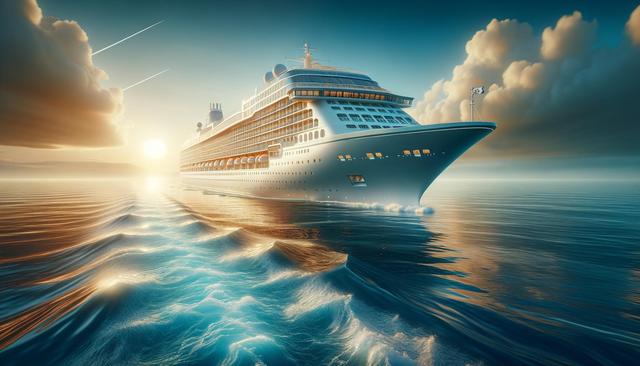The Evolving Appeal of Cruise Ships as Workplaces
In recent years, cruise ships have become more than just vacation destinations—they’ve emerged as workplaces that offer distinctive experiences and career growth. With the global cruise industry expanding steadily, the demand for skilled personnel has risen, drawing a diverse array of applicants from various professional backgrounds. Cruise roles are gaining attention primarily due to the blend of travel, cultural exchange, and job stability they offer. Unlike traditional office jobs, cruise ship positions cater to those who thrive in dynamic, ever-changing environments and value the opportunity to work with international teams.
Many are attracted to cruise careers because of the chance to explore new destinations while earning a living. This lifestyle appeals to both young professionals looking for adventure and seasoned workers interested in a career shift. Additionally, cruise companies often provide accommodation, meals, and healthcare, significantly reducing living expenses. This comprehensive support system allows employees to save money while gaining valuable work experience in hospitality, entertainment, health, and maritime services.
Key Roles Driving Cruise Industry Employment
The range of roles available on a cruise ship is vast, spanning departments such as hospitality, entertainment, culinary arts, technical operations, and guest services. Some of the most sought-after roles include:
- Hospitality staff (e.g., housekeeping, front desk, guest services)
- Food and beverage personnel (chefs, bartenders, waitstaff)
- Entertainment crew (dancers, musicians, activity coordinators)
- Medical professionals (nurses, doctors)
- Engineers and technical crew (navigation officers, electrical engineers)
Each of these roles plays a crucial part in ensuring smooth operations and delivering exceptional guest experiences. As cruise lines enhance their offerings to attract more travelers, the demand for skilled, service-oriented professionals continues to grow. Career advancement opportunities are also prevalent, with many cruise workers climbing the ranks from entry-level roles to management positions over time.
Training and Skills Development at Sea
Working on a cruise ship requires a unique set of skills that go beyond technical know-how. Employees must possess strong interpersonal abilities, cultural sensitivity, and adaptability. Most cruise lines offer in-depth training programs to prepare staff for life at sea, covering areas such as safety procedures, customer service, and emergency protocols. These programs help ensure that crew members are well-equipped to handle the challenges of shipboard life.
In addition to formal training, cruise jobs provide continuous opportunities for personal and professional development. Staff are regularly exposed to new languages, customs, and team dynamics, which enhance their communication and problem-solving skills. Such experiences can be particularly valuable for those looking to build a global career in hospitality or tourism.
A Global Workforce and Cultural Exchange
Cruise ships are known for their multicultural work environments. Crew members often come from dozens of different countries, creating a vibrant atmosphere of cultural exchange. This diversity fosters mutual respect and collaboration, which are essential in maintaining a harmonious onboard community. For many, the opportunity to work alongside individuals from different backgrounds is one of the most enriching aspects of cruise employment.
This global workforce also reflects the international nature of the cruise industry itself. With ships embarking from ports all over the world, crew members gain exposure to a wide range of cultures and perspectives. This not only broadens their worldview but also makes them more adaptable and open-minded—traits that are highly valued in today’s interconnected job market.
Challenges and Considerations of Cruise Careers
While cruise jobs offer numerous benefits, they also come with specific challenges. Long hours, extended time away from home, and limited privacy are common aspects of shipboard life. Employees must be prepared to live and work in close quarters, often sharing cabins and communal spaces with colleagues. This lifestyle can be demanding, especially for those new to the maritime industry.
However, for those who embrace the lifestyle, the rewards can be substantial. Many cruise workers report high levels of job satisfaction due to the relationships they build, the experiences they gain, and the financial advantages provided by reduced living costs. Before embarking on a cruise career, it’s essential to weigh the personal and professional implications, ensuring that the unique environment aligns with one’s goals and lifestyle preferences.
Conclusion: Is a Cruise Career Right for You?
As cruise roles continue to gain attention, they present a compelling option for individuals seeking meaningful work in a dynamic setting. Whether you’re drawn by the travel opportunities, the chance to develop new skills, or the appeal of working in a multicultural environment, cruise jobs offer a distinctive career path. For those willing to adapt to the challenges of life at sea, the experience can be both enriching and transformative.




Leave a Reply